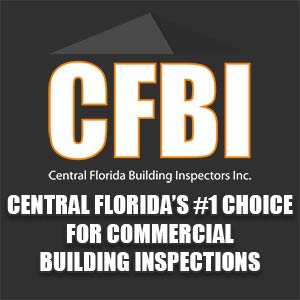Central Florida Balcony and Railing Inspections
CFBI: Your trusted partner for Balcony and Railing Inspections
in Orlando and the Central Florida area (Tampa to Daytona)
At Central Florida Building Inspectors (CFBI), we specialize in certified balcony railing inspections to ensure the safety and compliance of multi-story buildings, hotels, condominiums, and apartment complexes across Orlando, Tampa, and the greater Central Florida region. Our expert team follows Florida DBPR HR-7020 requirements, helping property owners and managers meet regulatory standards while ensuring the structural integrity of balconies and railings.

What our certified balcony inspections include
Visual & Structural Assessment
Identify visible damage, corrosion, and loose fittings.
Load Testing (If required)
Evaluate weight capacity and railing integrity.
DBPR HR-7020 Compliance Report
Provide documentation to meet Florida’s requirements.
Recommendations for Repairs & Maintenance
Why balcony and railing inspections are essential?
Regular inspections are mandatory in Florida for public lodging establishments such as hotels, motels, and apartments with three or more stories. These inspections help:
Ensure Structural Safety
Meet Legal Compliance
Increase Property Value
Well-maintained railings and balconies enhance tenant and guest satisfaction.
Why balcony and railing inspections are essential?
Our licensed inspectors perform thorough evaluations for:
Hotels & Resorts
Apartment Complexes & Condominiums
Commercial & Multi-Story Buildings
Property Management Companies & HOAs
Whether you manage a high-rise hotel in Orlando, an apartment complex in Tampa, or a beachfront condo in Daytona, CFBI ensures your property meets Florida’s balcony safety regulations.
Call For a Quote:
407-863-0651
F.A.Q.
Have questions about the home inspection process? Our FAQs cover everything you need to know before scheduling your balcony and railing inspection.
Are balcony and railing inspections required in Florida?
Yes, under certain circumstances. Florida law requires routine inspections for multifamily buildings three stories or taller, especially for balconies, railings, and other structural components.
What buildings are subject to mandatory balcony inspections?
Condominiums, apartment complexes, hotels, and other multi-unit residential buildings that are three stories or more in height are subject to regular balcony and railing inspections.
What Florida statute governs these inspections?
Florida Statute § 83.51 and § 718.301(4)(p) (for condos and multifamily properties) requires structural components such as balconies and railings to be inspected every 3 years by a licensed professional.
Who is responsible for scheduling balcony inspections?
The property owner, HOA board, or property manager is typically responsible for ensuring inspections are performed on time.
What is the purpose of a balcony and railing inspection?
How often should balconies and railings be inspected?
At least every 3 years for qualifying buildings, or sooner if signs of deterioration are observed. Some local jurisdictions may impose stricter requirements.
What components are inspected during a balcony inspection?
- Balcony floor and structural supports
- Guardrails and handrails
- Connections and anchorage
- Railing height and spacing (code compliance)
- Signs of corrosion, rust, rot, cracks, or deflection
Do balconies need to meet current building codes?
Is a written report provided after the inspection?
Yes. A certified inspection report documents findings, code compliance, needed repairs, and typically includes photos and recommendations.
How do I schedule a balcony and railing inspection?



